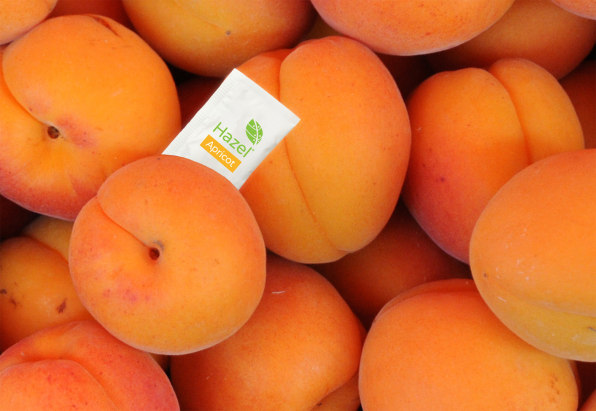
This tiny sachet the size of a sugar packet can be placed in a crate of fruit and it makes the produce last roughly three times longer than usual. The technology, from a startup called Hazel Technologies, was created as a simple way to tackle one piece of the world’s problem with food waste. In the U.S. alone, each year, $218 billion is spent growing, processing, delivering, and throwing out 52 million tons of uneaten food, often because it goes bad before someone can eat it. Another 10 million tons of food never makes it off farms.
“Agriculture is central to human existence, but despite that, we haven’t had nearly the same level of technological revolutions that we have in other world systems like energy or transportation or medicine,” says Aidan Mouat, the CEO of Hazel Technologies. “So I saw a real opportunity there.”
Mouat cofounded the company as a postdoctoral student at Northwestern University. A fellow student and cofounder was studying a way to control the pathways that make produce ripen and eventually decay by mimicking the natural process; Mouat was studying the use of biodegradable, nontoxic materials that could control the same type of material. They decided to work together, along with a group of other students.
The sachet, one of the company’s first products, works by inhibiting ethylene, a hormone molecule that fruit naturally emits and that triggers the aging process. It’s something that the food industry already tries to control—some storage facilities use machinery to filter ethylene out of the air or apply a coating to fruit or vegetables. But the tiny packets are simpler to use. A quarter gram of the material inside the packet can protect 50 pounds of produce. The chemicals are proprietary, but the company says that the sachet time releases them to help preserve the product. Each fruit has a different package based on the ethylene sensitivity of the fruit. Other products might need different products entirely: berries need antimicrobials, for instance, but don’t have a problem with ethylene.